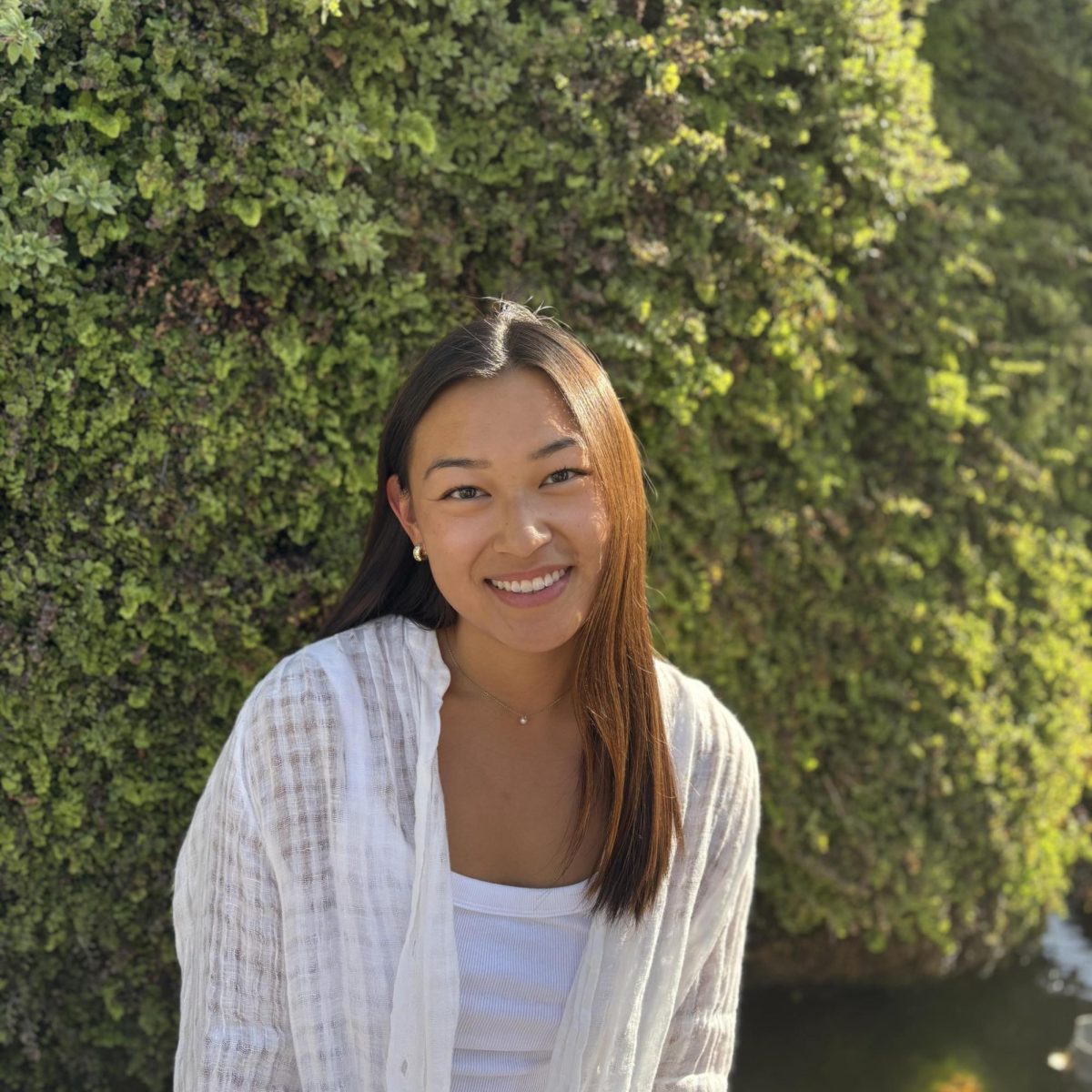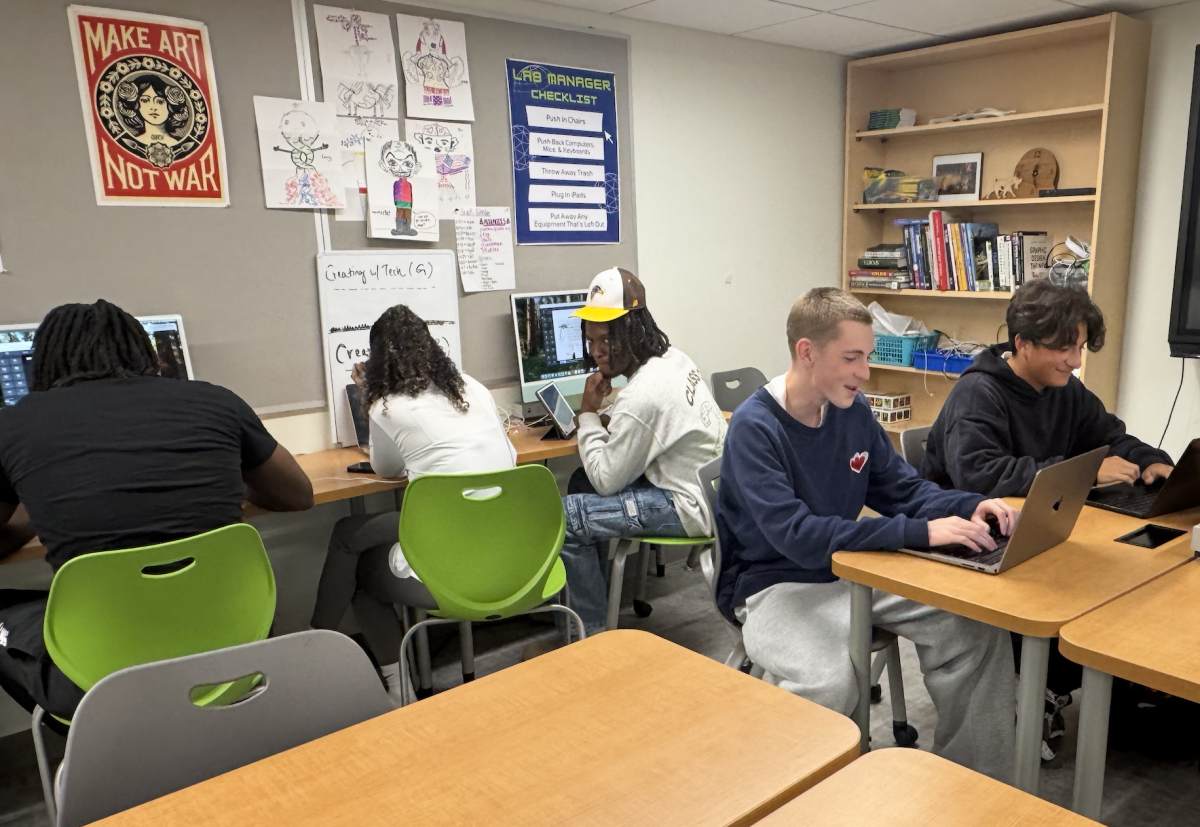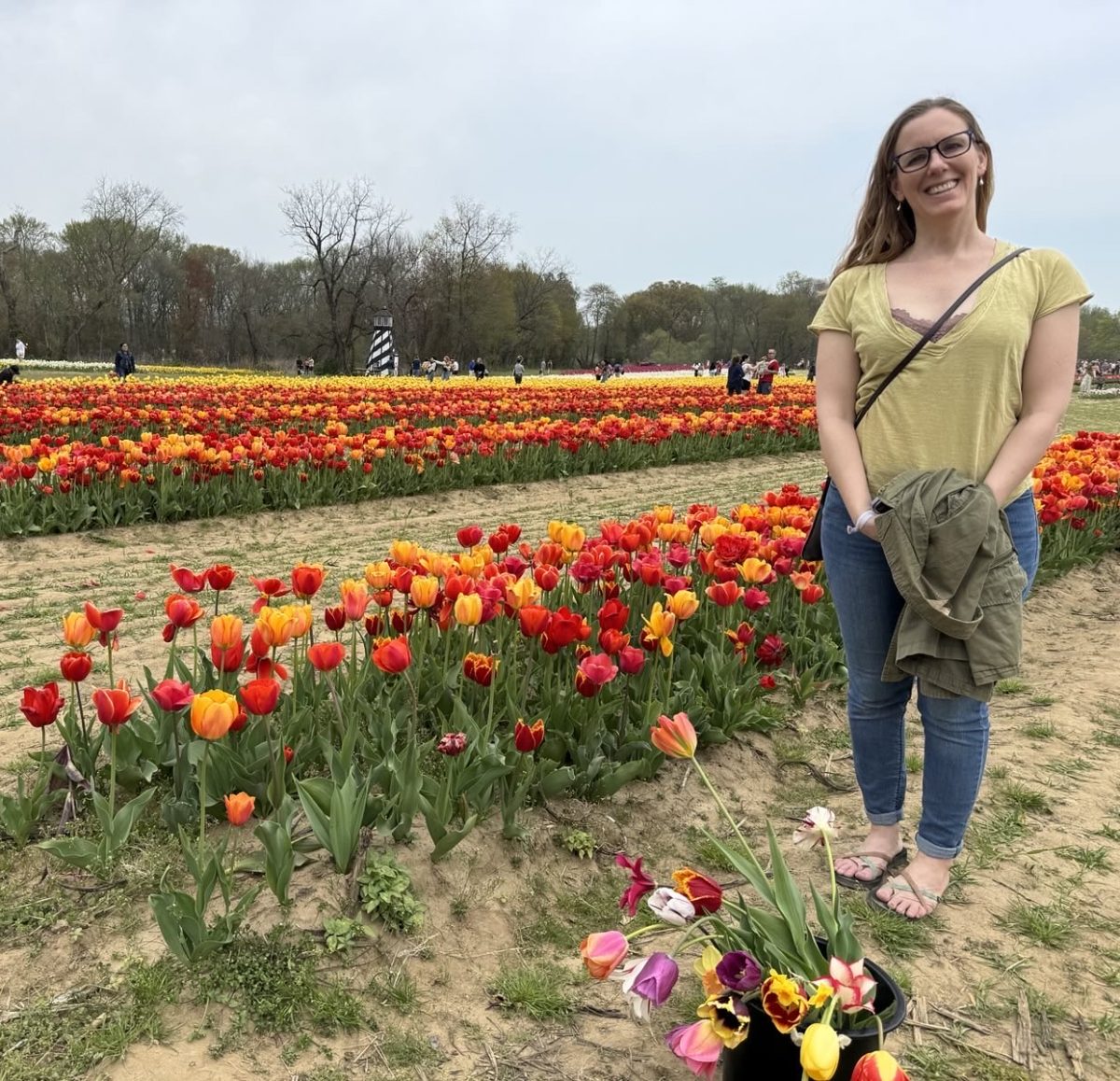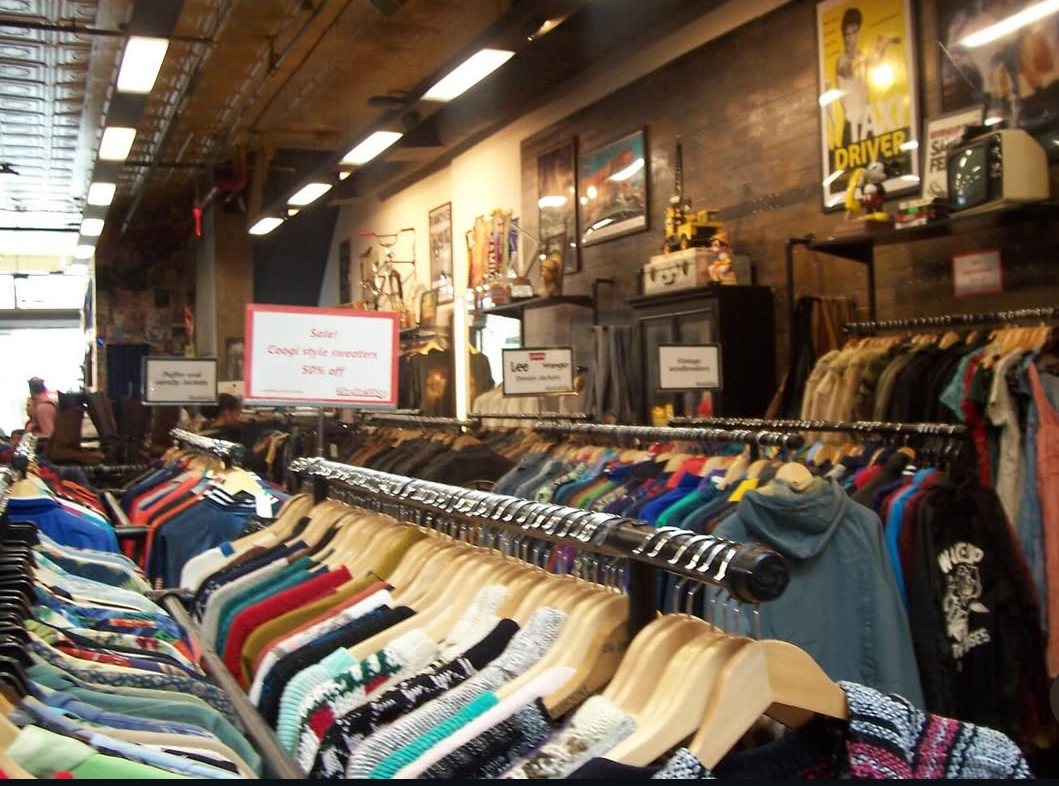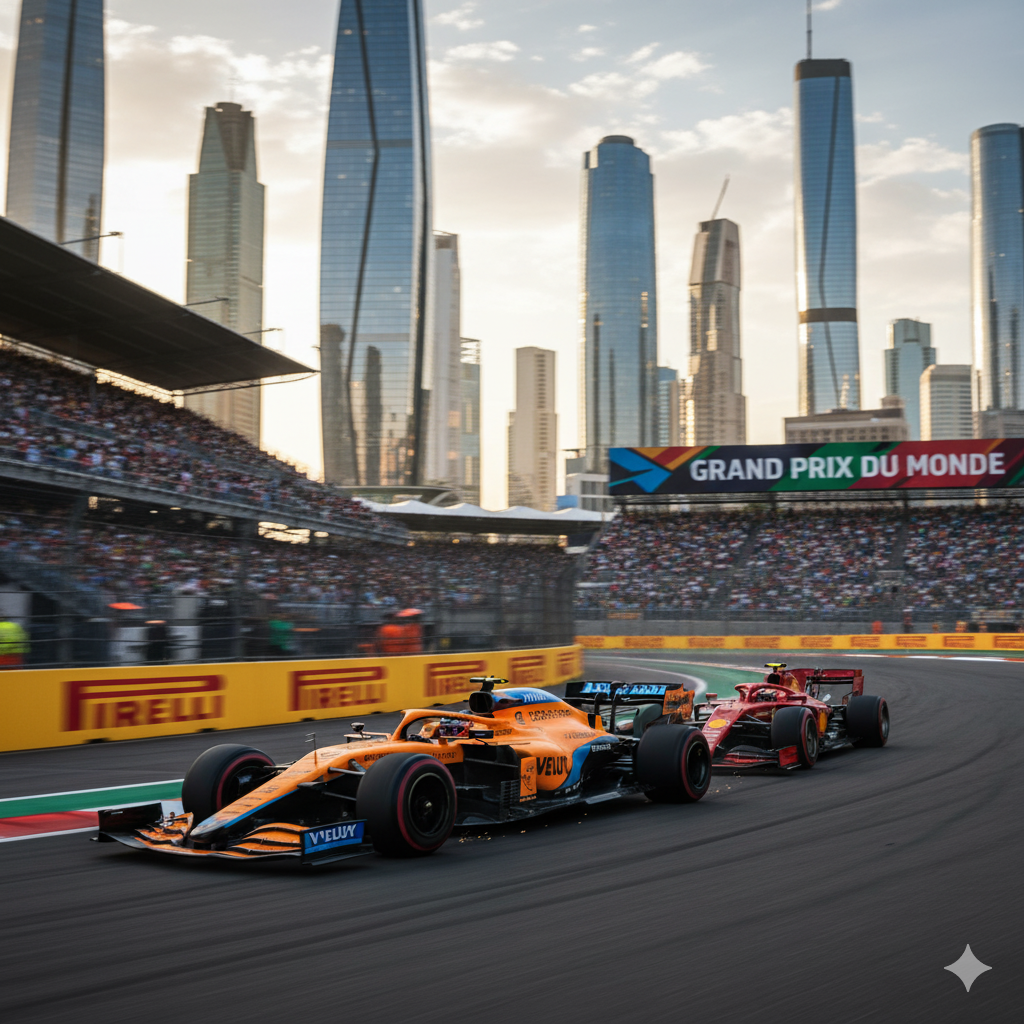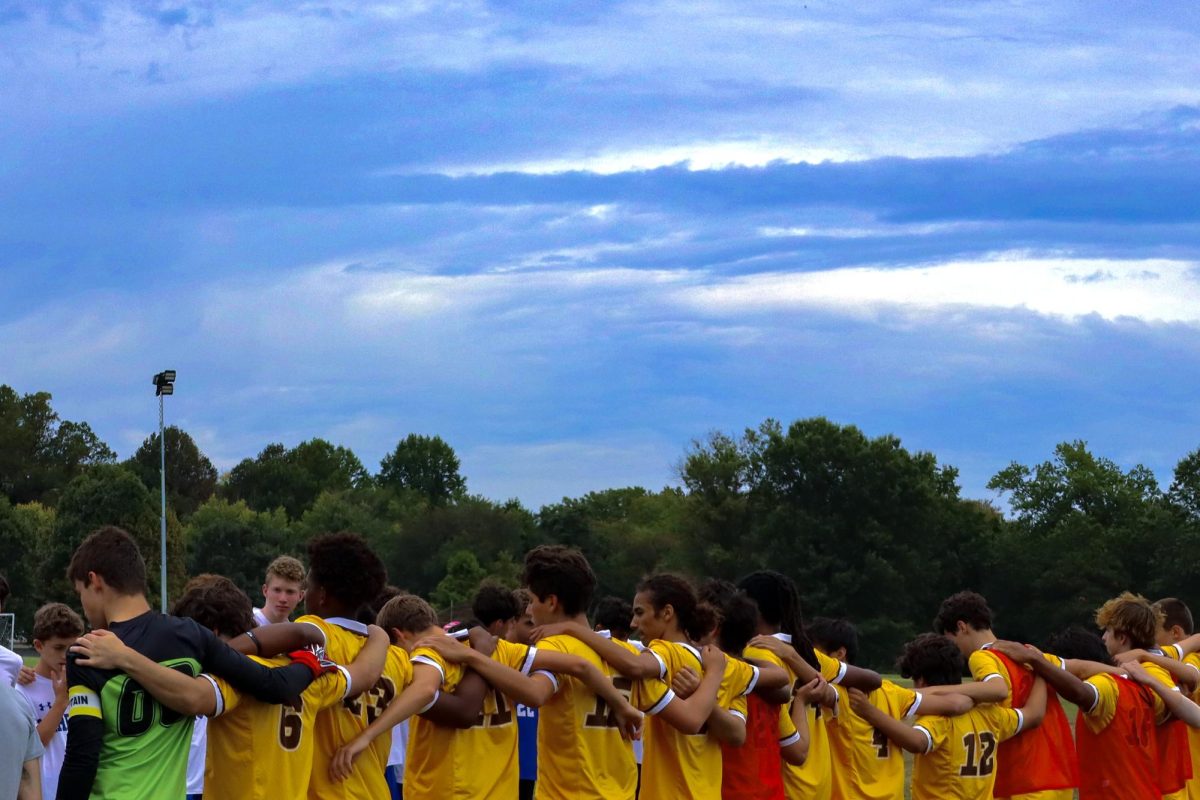Friends Select provides an abundance of electives for students to explore more specific topics and themes, and the humanities and visual arts departments are no exception. “I love teaching electives where students choose to take the course and have a genuine interest in the topic, which really adds to everyone’s engagement. I also think the electives are a great chance to sample a new topic or discipline before getting to college,” says Dave Marshall, Upper School History Teacher.
Below are the new courses being offered next year in the Visual Arts, History, and English departments.
VISUAL ARTS
Next year in the Visual Arts Department, there will be three new classes, including two technology-focused art courses. Creating with Technology I is replacing Digital Photography, Video Production, and Digital Art. According to the course catalog, students will have the option to choose which digital mediums they would like to explore, whether that’s filmmaking, photography, graphic design, CAD, or digital illustration. In Creating with Technology: Advanced Projects, students will go deeper into the medium of their choosing. They will also have time to create their digital art portfolios for college.
The other new art class is 3D Senior Studio, which “is for seniors only,” Upper School Art Teacher Zoë Blatt explains. “[Seniors] who primarily work with sculpture, metals, and glass can create their 3D art college portfolio in this course.”
ENGLISH
Exploding the Canon: Ancient Texts in Modern Contexts:
According to the course catalog, “This course has conversations of the present through reading ancient texts from the past from all parts of the world, both in their historical contexts and in our contemporary context. Ancient Texts in Modern Contexts will look at how “class, gender, race, and nationality” are depicted and adapted over time in these texts. “I was growing frustrated by the ways in which people used those classics (called the canon) to silence more contemporary narratives of marginalized people,” says Miriam Rock, Upper School English Teacher. Students will be responding to the texts through analytic essays, presentations, and personal writing. “I would recommend this course for anyone who is curious about putting conversations from the past in conversation with those in the present,” says Miriam.
Journalism I & II
Another change this year is the split of Journalism into two separate semester classes. This means that students can take Journalism I in either the fall or spring semester; taking it in the fall gives students the option to take Journalism II in the spring for more advanced work. “We decided to switch from year-long to semesters so students would have the opportunity to experience more of the many wonderful English electives we offer,” says Zoë, Upper School Journalism teacher. In both courses, students will collaborate to help create The Falcon, the online newspaper, along with learning writing techniques for a variety of journalistic prose, such as hard news, features, reviews, and editorials. Students will also explore podcasting, photojournalism, and infographic design. Zoe recommends these courses to “students who are interested in writing or creating multimedia content for a real-world audience.”
Black Writers
In the Spring, Matthew Rosen, Upper School English Teacher, is offering a new African American Literature course, Black Writers. Matthew says, “It is my hope to not only represent the rich African American tradition in this new class but to also include impactful Black writers from around the world.” In this course, students will read works by African-American and Afro-Caribbean authors to explore Black Identity. Reading a variety of Black writers from the United States and the Caribbean such as Ralph Ellison, Octavia Butler, Derek Walcott, Alice Walker, James Baldwin, Jamaica Kincaid, Ta-Nehisi Coates, Marlon James, Edwidge Danticat, and Toni Morrison. “I look forward to exploring the Black experience from a global perspective. I am also excited to share some interesting films in this class,” Matthew expressed
Playwriting & Creative Writing
Taught by Stephanie Kyung Sun Walters, Upper School Drama Teacher, Playwriting & Creating Writing is cross-listed with the drama department and will explore creative writing techniques and exercises to draft and complete their own creative project. Classes are designed to be a series of guided writing exercises, free writing for mindfulness, group discussions of case-study readings, and sharing of our drafts for feedback. “This course will offer students the opportunity to flex their creative muscles through the medium of their choice,” says Stephanie. “We’ll explore different case studies from poetry to short stories to plays and discuss the author’s structure and style.”
Speculative Fiction: Sci-fi, Fantasy, Horror, & More
Suzanne Morrison, English Department Chair, has been teaching a form of the Monstrous Imaginings class for around 20 years, and now the course has an unofficial sequel. “One is not a prerequisite of the other. They just complement each other well; they are in good dialogue together,” said Suzanne. Speculative Fiction demands reflection on our current world, past choices, and future possibilities. In its thrilling psychological experiences for the reader, speculative fiction offers a deep exploration of social injustices, power hierarchies, dystopian nightmares, and utopian dreams. Suzanne recommends this course to “anyone who likes a theme-based focus of study, who is curious about philosophy, who likes to read (an older text or two), who enjoys analyzing films, and who likes to ponder what it is that makes us humans and gives meaning and purpose to our lives.”
HISTORY
Progress: A Modern History: Dave Marshall, Upper School History Teacher, says, “For ‘Progress: A Modern History,’ which I’m teaching in the fall, I find that so much news coverage and so many history courses focus disproportionately on the negative. In this course, I plan to counter that by focusing on success stories of progress, from vaccines to voting rights.” As the course overview states, this course will cover topics such as: “What are the biggest breakthroughs in world history since 1900”, “What happens when economic and environmental progress clash?”, and “For transformative inventions like cars, nuclear power, air conditioning, smartphones, and AI, what are the benefits– and the costs?” All while unpacking the question of what defines progress, this course will counter our negativity bias and provide valuable lessons on innovation and activism today by emphasizing the success stories in history.
Destination Philly: An Exploration of Philadelphia Neighborhoods: This course is unique in the sense that it allows students a very hands-on experience, exploring the city, visiting community organizations and businesses, and sampling local cuisine. The city of Philadelphia has a very rich and diverse history that this course will unpack. The course catalog says, “Even before its founding in 1682, people of many different ethnicities migrated to Philly, formed enclaves, and carved out their neighborhoods… Migrants came together both because they were excluded by others and sought safety and a sense of ethnic affinity.”

